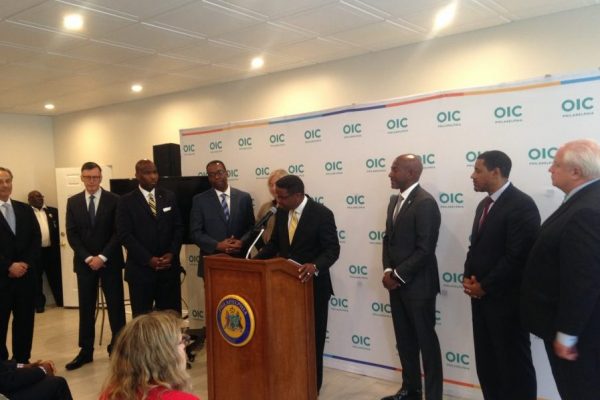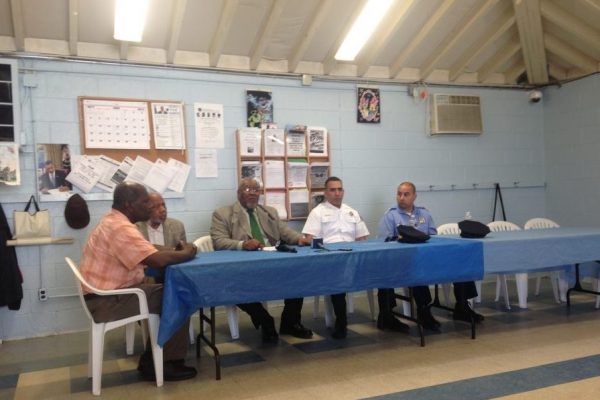Get Arbitrated: Brewerytown Square Condominium Association Seeks More than $128,000 in Unpaid Membership Fees
A hearing on the latest of 30 collections claims by the Brewerytown Square Condominium Association against residents at the 31st and Thompson Street complex will take place in Philadelphia’s Municipal Court on Friday, February 26th. The Association has sought to recoup more than $128,000 in unpaid membership fees since 2008.
What provoked this raft of defaults remains unclear. The Association’s attorney, Robert Hoffman of law firm Marcus & Hoffman, did not respond to questions about their nature.
Westrum Development Company built and marketed the Brewerytown Square condominiums, which first went up for sale in 2005. Karen Mraz, Executive Assistant to the CEO at Westrum, said her firm bears no “affiliation with the Association and [doesn’t] have a comment about their lawsuits.”
144 condominiums at Brewerytown Square cost nearly $21 million to build and market, according to figures Westrum provided in an expense study. Real estate records show the firm has since banked at least $35 million in sales on 139 condos in that development.
Some time during the mid-2000s, a handful of Brewerytown Square residents found the heating systems in their newly purchased homes didn’t work properly. At least 18 similar reports accumulated.
The matter ultimately turned into a Philadelphia Common Pleas Court lawsuit against Westrum and its affiliates. Plaintiffs in that suit alleged the developer “engaged in delay” and “purposefully mislead” homeowners regarding
“the true nature and extent of the heating defect, and then failed and refused to cure the defect in accordance with the Homeowner’s Limited Warranty, subsequently offering to install a substandard secondary heat source.”
Due to clauses residents signed in their agreements of sale, the case went to arbitration: a private, out-of-court hearing held under authority of non-judges that get paid per-dispute. Arbitrators in 2013 awarded plaintiffs $10,000 on a request for $50,000 in damages and fees.
Knowingly or not, consumers sometimes sign contracts that contain “arbitration clauses,” which block their right to civil trial should disagreement arise over the terms of the contract.
Have you ever bought stuff on Amazon.com? You’ve likely signed something similar. Such clauses also pervade contracts offered by cellphone providers, for-profit colleges and real estate developers.
U.S. courts of years past generally detested arbitration. The Supreme Court in a 1974 decision stated the fact finding process in arbitration is usually
“not equivalent to judicial fact finding… [T]he record of the arbitration proceedings is not as complete; the usual rules of evidence do not apply; and rights and procedures common to civil trials, such as discovery, compulsory process, cross-examination, and testimony under oath, are often severely limited or unavailable.”
More recently, Supreme Court has softened toward arbitration and even granted the process greater power and larger scope. They’ve also curtailed options available to people who try to dispute the validity of contracts they’ve signed that contain arbitration clauses. Justice Antonin Scalia, now deceased, wrote majority opinions in two such cases.
In AT&T Mobility LLC v. Concepcion, the Supreme Court made it harder for multiple plaintiffs to arbitrate together as they would in a class action lawsuit.
Rent-a-Center v. Jackson is trickier to explain. Say someone thinks a civil court should decide whether a contract they’ve signed is fair. But the contract states that arbitrators get final say in the event that such a disagreement occurs. The Supreme Court in this decision held the dissenting signer has virtually no further recourse in that situation.
Law scholar Ramona Lampley has recently dubbed consumers and employees arbitration’s “underdog” claimants, as courts have slanted so deeply against them in the past 10 years.
Big firms arbitrate most often. And if they’re not dumb, they’ll track what wins and figure out what doesn’t over time. This ability grants big firms home team advantage against underdogs who will likely go through arbitration only once or a few times if ever.
Underdogs also typically don’t enjoy the same business relationships with arbitrators that some big firms do.
Minnesota’s Attorney General in 2009 sued the National Arbitration Forum, alleging the organization had relations to the collections industry. The Attorney General also believed the organization “worked to convince credit card companies and other creditors to insert arbitration provisions in their customer agreements and then appoint the Forum to decide the disputes.”
The Forum, furthermore, allegedly hid these relationships to uphold a facade of “independence, neutrality, similarity to a court, and lack of ties to parties that appear before it.” Law firms related to the Forum through a family of New York hedge funds filed 60 percent of consumer disputes the Forum arbitrated in 2006.
The National Arbitration Forum settled the suit in one week and agreed to stop handling consumer arbitration altogether. Bad actors, right?
Law scholars Andrea Chandrasekher and David Horton recently analyzed about 5,000 arbitrated disputes filed in California between 2009 and 2013. They found pervasive evidence of anti-underdog bias across several industries. “High-level and super repeat players are harder to beat in arbitration and pay less in damages,” according to a Georgetown Law Journal article Chandrasekher and Horton published on these findings.
This study builds on prior research by the Consumer Finance Protection Bureau. The Bureau’s work is “careful and comprehensive,” Horton explained via phone. “But it focuses just on arbitration in the financial services industry, and it doesn’t provide much information about outcomes in cases involving repeat players.”









